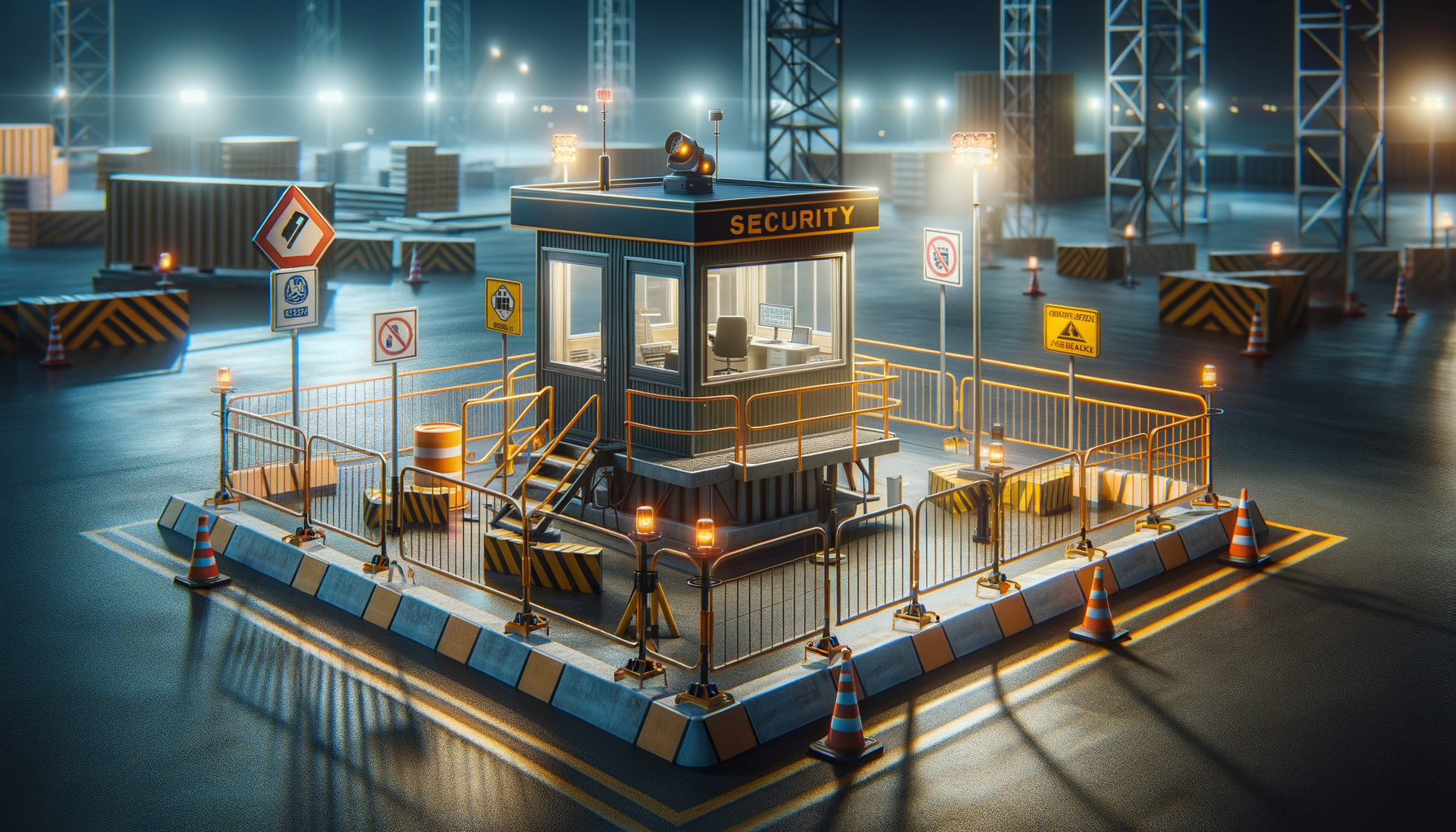
Guard Rails: Essential for Construction Security
The Role of Construction Security Guards
Construction sites are bustling hubs of activity, often sprawling over large areas with numerous entry and exit points. This dynamic environment poses unique security challenges, making the role of construction security guards indispensable. These professionals are tasked with safeguarding the site, protecting valuable equipment, and ensuring the safety of workers. Their presence deters potential theft and vandalism, which are common issues faced by construction projects. According to industry reports, construction sites can lose up to $1 billion annually to theft, highlighting the importance of robust security measures.
Construction security guards are trained to monitor surveillance systems, perform regular patrols, and manage access control to ensure that only authorized personnel enter the site. Their vigilance helps in identifying and mitigating risks before they escalate into serious incidents. Additionally, these guards are often the first responders in emergencies, providing critical support until law enforcement or emergency services arrive. By maintaining a visible presence, security guards not only protect assets but also contribute to a safer working environment for all site personnel.
Key Responsibilities and Skills
The responsibilities of construction security guards extend beyond merely patrolling the site. They are responsible for enforcing site rules, managing visitor logs, and ensuring compliance with safety regulations. Effective communication skills are crucial, as security guards must liaise with site managers, workers, and sometimes local authorities. In the event of an incident, they must be able to provide clear and concise reports, detailing occurrences and actions taken.
Security guards must also possess a keen eye for detail and the ability to remain calm under pressure. Their training often includes conflict resolution techniques, enabling them to handle disputes or confrontations that may arise on-site. Additionally, familiarity with basic first aid and emergency response protocols is essential, as construction sites can be hazardous environments where accidents are more likely to occur. The combination of these skills ensures that construction security guards are well-equipped to handle the diverse challenges they may face.
Technological Advancements in Construction Security
Technology has revolutionized many industries, and construction security is no exception. Modern security systems integrate advanced technologies such as CCTV, motion sensors, and drones to enhance site surveillance. Construction security guards are increasingly required to operate and monitor these systems, providing real-time data and alerts that enable proactive security measures.
One of the significant advancements is the use of drones for aerial surveillance, offering a bird’s-eye view of the entire site. This technology allows security personnel to monitor large areas efficiently and respond quickly to potential threats. Additionally, biometric access control systems are being implemented to ensure that only authorized individuals can enter sensitive areas, further enhancing site security.
These technological tools not only improve the effectiveness of security operations but also allow for better resource allocation. By leveraging technology, construction security guards can focus on strategic areas and tasks that require human intervention, maximizing their impact on overall site safety.
Challenges Faced by Construction Security Guards
Despite their critical role, construction security guards face several challenges that can impede their effectiveness. One of the primary issues is the vast and open nature of construction sites, which can make it difficult to monitor all areas simultaneously. This challenge is compounded by the fact that construction sites often operate around the clock, requiring security personnel to work in shifts and maintain vigilance during nighttime hours when risks may increase.
Another challenge is the dynamic nature of construction projects, where the layout and access points can change frequently as the project progresses. This requires security guards to adapt quickly to new configurations and maintain updated knowledge of the site layout. Weather conditions can also pose a challenge, as guards must perform their duties in various climates, which can affect their ability to patrol effectively.
Lastly, the presence of multiple contractors and subcontractors on-site can complicate access control and identity verification processes. Security guards must ensure that all personnel are properly vetted and authorized to be on-site, which requires diligence and attention to detail.
Conclusion: The Vital Role of Construction Security Guards
Construction security guards play a vital role in safeguarding construction sites, protecting valuable assets, and ensuring the safety of workers. Their presence deters theft and vandalism, while their skills and training enable them to respond effectively to emergencies and incidents. As construction projects continue to evolve and grow in complexity, the demand for skilled security personnel will only increase.
By embracing technological advancements and overcoming the challenges they face, construction security guards can continue to provide exceptional service and contribute to the successful completion of construction projects. Their role is not only about protecting physical assets but also about fostering a secure and productive work environment for everyone involved in the construction process.


